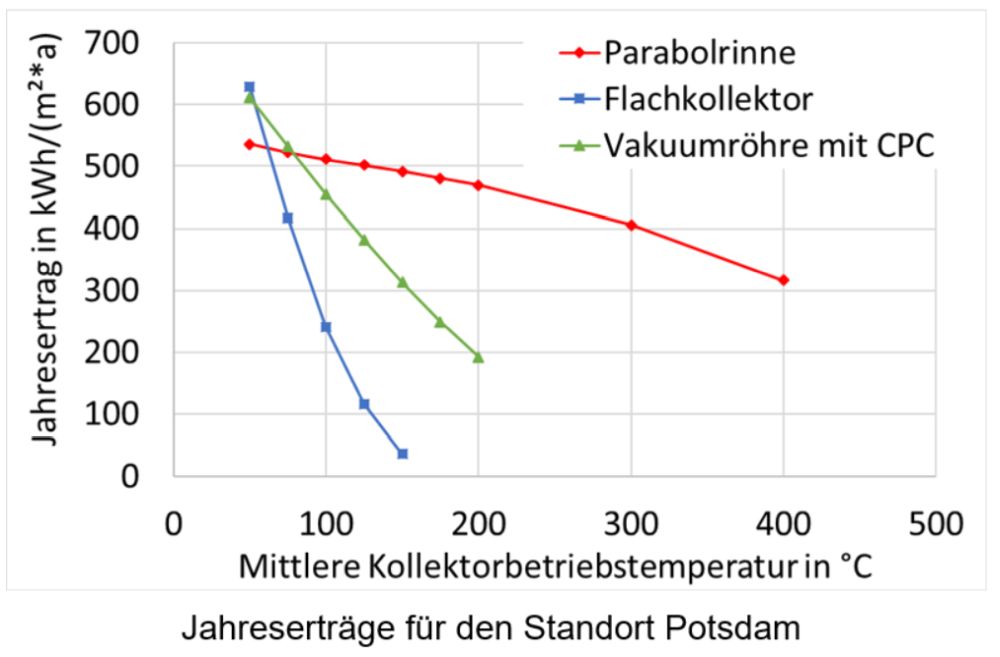| Duration: | 05/2024 - 04/2027 |
| Contracting Authority/ Sponsors: | Federal Ministry of Economic Affairs and Climate Action (BMWK) |
| Project Partners: | Deutsches Zentrum für Luft- und Raumfahrt e.V., Protaget AG, Solarlite CSP Technology GmbH, Solites – Steinbeis Innovation gGmbH, Dornier Power and Heat GmbH, RZVN Wehr GmbH |
| Website: | Bundesverband Solarwirtschaft e. V. – ProSolNetz |
| Project Focus: |
ProSolNetz – Process and District Heating with Concentrating Solar Collectors

Concentrating solar collectors are a key technology for the heating transition. Studies show that they can also make a significant contribution to the heat supply in Germany as a cost-efficient replacement for fossil fuels. They deliver high yields at temperatures well above 100°C (Figure 1). Concentrating solar technologies open up a viable pillar for renewable heat supply in Germany. The ProSolNetz project contributes to the dissemination of knowledge about the diverse application possibilities of concentrating solar thermal energy, also in combination with other renewable energy technologies. Municipal and system planners are provided with tools that enable rapid market introduction.
The ProSolNetz joint project is funded by the Federal Ministry of Economics and Climate Protection (BMWK) via the Project Management Jülich (PTJ) as part of the 7th Energy Research Program. The aim of the application-oriented project is to use concentrating solar thermal energy economically and technically successfully in German heating networks and to generate process heat. To this end, the necessary developments and evaluations will also be carried out on the first pilot plants of Solarlite CSP Technology GmbH and Protarget AG.
Fraunhofer ISE will scientifically measure and monitor the thermal yields of commercial parabolic trough systems. The measurement data will serve as validation and practical proof of the performance and functionality of concentrating collectors in the future-oriented sectors of heating networks and process heat. The ProSolNetz project is developing marketable tools for predicting and verifying yields for use with concentrating collectors.
In order to achieve the goal of a secure heat supply based on renewable energies, a concept for system integration is being developed that takes into account the integration of concentrating solar thermal energy. A key component of the project is the dissemination of the results and information on the technology to market players and stakeholders. To this end, the project partners are developing training courses to enable municipal utilities and planning offices to plan and implement concentrating solar thermal systems. The general transfer of knowledge takes place in various formats such as workshops, on-site visits to plants, specialist contributions at conferences, participation in international committees and the establishment of an internet platform as a central point of contact for concentrating solar thermal energy.